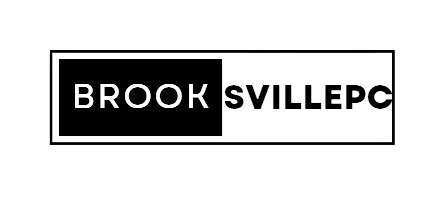A Career in The Culinary Arts
Are you passionate about food and cooking? Enjoy creating delicious dishes and experimenting with new flavours? If so, consider a career in the culinary arts. The culinary arts are the art and science of preparing and presenting food, offering various professions and specialties. Whether you aspire to be a pastry chef, nutritionist, caterer, or food critic, there’s a culinary job that matches your interests and skills. Explore the possibilities in the world of culinary arts!
In this article, we will explore the benefits of a career in the culinary arts, the different types of culinary jobs, the skills and qualifications required, and the tips and resources for success. By the end of this article, you will have a better understanding of what it takes to become a culinary professional and how to achieve your goals.
The Benefits of a Career in The Culinary Arts
There are many reasons why a career in the culinary arts can be rewarding and fulfilling. Here are some of the benefits of working in this field:
- You can express your creativity and personality through your food. You can experiment with different ingredients, techniques, and styles and create dishes that reflect your vision and taste.
- You can make people happy and satisfied with your food. You can provide a memorable dining experience for your customers, clients, or guests and make them feel special and appreciated.
- You can learn new things and expand your knowledge. You can explore different cuisines, cultures, and traditions and discover new flavours and combinations. You can also learn from other culinary professionals and improve your skills and expertise.
- You can have a variety of career options and opportunities. You can work in different settings, such as restaurants, hotels, resorts, catering companies, schools, hospitals, etc. You can also specialise in a specific area, such as pastry, nutrition, catering, etc. You can also start your own business or become a freelance consultant.
- You can have a stable and growing career. The culinary industry is one of the fastest-growing and most in-demand sectors in the world. According to the Bureau of Labour Statistics, the employment of chefs and head cooks is projected to grow by 6% from 2019 to 2029, faster than the average for all occupations. The median annual wage for chefs and head cooks was $51,530 in May 2019.
The Different Types of Culinary Jobs
As mentioned earlier, the culinary arts is a broad and diverse field that offers a range of professions and specialties. Here are some of the most common and popular culinary jobs, along with their roles and responsibilities:
Pastry Chef
A pastry chef is a culinary professional who specialises in making desserts like cakes, pies, cookies, pastries, breads, and more. They are responsible for:
- Creating and developing dessert menus and recipes
- Preparing and baking desserts according to the standards and specifications
- Decorating and presenting desserts in an attractive and appealing way
- Ensuring the quality and freshness of the ingredients and products
- Managing the inventory and ordering of supplies and equipment
- Supervising and training other pastry staff
A pastry chef typically works in restaurants, bakeries, hotels, or catering companies. The average salary for a pastry chef in the United States was $47,527 in 2020. The job outlook for pastry chefs is expected to be positive, as the demand for specialty desserts and baked goods is increasing.
Nutritionist
A nutritionist is a culinary expert who specialises in offering dietary advice and guidance to individuals or groups, tailored to their health and wellness objectives. They play a crucial role in assisting individuals in achieving their nutritional goals and maintaining overall well-being.
- Assessing the nutritional needs and preferences of clients
- Designing and recommending personalised meal plans and menus
- Educating and counselling clients on healthy eating habits and practices
- Evaluating and monitoring the progress and outcomes of clients
- Staying updated on the latest research and trends in nutrition and food science
- Collaborating with other health care professionals and organisations
Nutritionists typically operate in a range of settings, such as hospitals, clinics, schools, wellness centres, or private practices.They have the opportunity to make a positive impact on people’s lives through their expertise in nutrition. The average salary for a nutritionist in the United States was $60,370 in 2019. The job outlook for nutritionists is expected to be favourable, as the demand for nutrition services and education is increasing, especially in the areas of chronic disease prevention and management, obesity, and ageing.
Caterer
A caterer is a culinary professional who offers food and beverage services for events like weddings, parties, conferences, and more. They are responsible for:
- Consulting with clients and understanding their needs and expectations
- Planning and preparing menus and dishes that suit the theme, budget, and preferences of the clients
- Transporting and setting up the food and equipment at the venue
- Serving and presenting the food and drinks in a professional and courteous manner
- Cleaning and packing up the food and equipment after the event
- Managing the staff, inventory, and finances of the catering business
A caterer typically works for a catering company or runs their own catering business. The average salary for a caterer in the United States was $37,354 in 2020. The job outlook for caterers is expected to be positive, as the demand for catering services is increasing, especially for corporate and social events.
Food Critic
A food critic evaluates and reviews food and restaurants and writes for various media outlets. Their responsibilities include:
- Visiting and sampling different restaurants and cuisines
- Writing honest and objective reviews and ratings of the food, service, atmosphere, and value of the restaurants
- Providing constructive feedback and suggestions for improvement to the restaurant owners and chefs
- Staying updated on the latest trends and developments in the culinary industry
- Building and maintaining a reputation and credibility as a food critic
A food critic typically works as a freelance writer or for a media organisation. The average salary for a food critic in the United States was $51,324 in 2020. The job outlook for food critics is expected to be competitive, as the number of openings is limited and the competition is high.
The Skills and Qualifications Required
To become a successful culinary professional, you need to have certain skills and qualifications that are relevant and essential for your chosen career path. Here are some of the common skills and qualifications required for most culinary jobs:
Educational and Training Requirements
Depending on the level and type of culinary job you want to pursue, you may need to have a formal education and training in the culinary arts. Some of the educational and training options include the following:
- A high school diploma or equivalent, which is the minimum requirement for most entry-level culinary jobs
- A certificate or diploma in culinary arts, which is a short-term programme that covers the basic skills and knowledge of cooking and baking
- An associate’s or bachelor’s degree in culinary arts is a longer-term programme that covers advanced cooking and baking skills, along with other aspects of the culinary industry like management, nutrition, and sanitation. It’s a great way to dive deep into the wonderful world of food! 🍳🍰
- An apprenticeship is a hands-on training programme that combines classroom instruction and on-the-job experience under the supervision of a mentor or a master chef
When searching for culinary schools and programmes, you’ll discover a wide range of options available both online and offline. Key factors to consider when choosing the right culinary school or programme include accreditation, reputation, curriculum, faculty, facilities, cost, and placement opportunities. Explore this comprehensive guide to find the ideal culinary education that suits your needs and goals.
Practical and Technical Skills
Regardless of your educational and training background, you need to have practical and technical skills that are necessary for performing your culinary tasks and duties. Some of the practical and technical skills include:
- Cooking and baking skills, such as knowing how to use different methods, techniques, tools, and equipment, and how to prepare and cook different types of food, such as meat, seafood, vegetables, grains, dairy, etc.
- Food safety and sanitation skills, such as knowing how to handle, store, and dispose of food properly and how to follow health and hygiene standards and regulations
- Knife skills, such as knowing how to use, sharpen, and maintain different types of knives and how to cut, chop, slice, dice, and mince different types of food
- Food presentation skills, such as knowing how to plate, garnish, and decorate food in an attractive and appetizing way.
Soft Skills and Personal Attributes
Alongside practical and technical skills, it’s important to have soft skills and personal attributes when working in the culinary industry. Here are some of the soft skills and personal attributes to consider:
- Creativity, which is the ability to come up with new and original ideas and solutions and to adapt to changing situations and demands,
- Communication, which is the ability to express yourself clearly and effectively and to listen and understand others, both verbally and in writing,
- Teamwork, which is the ability to work well with others and to cooperate and coordinate with different people and departments,
- Problem-solving, which is the ability to identify and resolve issues and challenges and to make sound decisions and judgements
- Time management, which is the ability to plan and organise your tasks and priorities and to meet deadlines and expectations,
- Customer service, which is the ability to provide quality and satisfactory service to your customers, clients, or guests, and to handle their feedback and complaints
- Passion, which is the enthusiasm and interest you have for your work and your field, and the willingness to learn and improve yourself
Tips and Resources for Success
Hey there! If you’re looking to achieve your goals and dreams in the culinary arts, I’ve got some helpful tips and resources to share with you. Check them out for success:
Tips
Some of the best practices and advice for aspiring and current culinary professionals are:
- Hey there! Are you interested in networking and connecting with other culinary professionals and organisations? You won’t believe how much you can learn from their experiences and insights. Not to mention the incredible opportunities and support you’ll find to help your career development! Don’t hesitate; reach out to chefs, mentors, peers, and associations. They’re all there to lend a helping hand and cheer you on in the culinary world. So, what are you waiting for? Start making those connections today!
- Make sure to stay in the loop and stay informed about the latest trends and developments in the culinary industry! Keep up with news, magazines, blogs, podcasts, and more that cover all things culinary. Happy exploring! 🍽️🌮🍕
- Don’t forget to seek feedback and continuously improve your work and skills! It’s valuable to ask for constructive criticism and suggestions from supervisors, colleagues, customers, and others. Take time to review and evaluate your own performance and progress, identifying your strengths and weaknesses along the way. Keep growing and evolving!
- Discover the vast and exciting world of culinary arts through experimentation and exploration. From diverse types of food to various cooking and baking techniques, there are endless possibilities to try. Unleash your creativity, uncover new recipes, methods, and styles, and unlock your true culinary potential. Find your preferences and immerse yourself in the art of cooking, baking, and more. Start your culinary journey today!
- Enjoy and have fun with your work and passion. You can find joy and satisfaction in creating and sharing your food, and in expressing your creativity and personality.
Resources
Some of the useful resources and tools for learning and improving your culinary skills are:
- Books such as The Professional Chef by The Culinary Institute of America, On Food and Cooking by Harold McGee, The Flavour Bible by Karen Page and Andrew Dornenburg, etc.
- Websites, such as [Allrecipes] (https://www.allrecipes.com/), [Food Network] (https://www.foodnetwork.com/), [Serious Eats] (https://www.seriouseats.com/), etc.
- Podcasts, such as [The Splendid Table] (https://www.splendidtable.org/), [Gastropod] (https://gastropod.com/), [The Sporkful] (https://www.sporkful.com/), etc.
- Online courses, such as [MasterClass] (https://www.masterclass.com/), [Udemy] (https://www.udemy.com/), [Coursera] (https://www.coursera.org/), etc.
Conclusion
A career in the culinary arts can be fulfilling for food lovers. The industry offers various specialties like pastry chef, nutritionist, caterer, and food critic. To succeed, you need skills, qualifications, and helpful tips. We hope this article provides valuable insights for pursuing your passion in the culinary arts. It’s not just a profession but also an art, science, and way of life.





